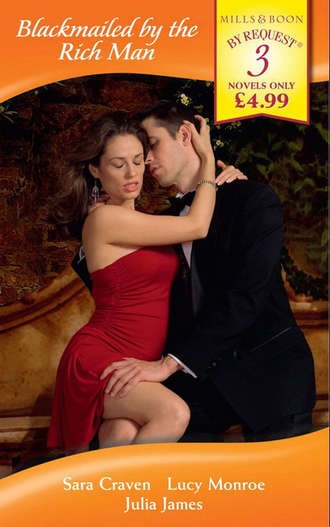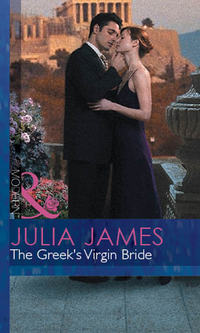
Полная версия
Blackmailed by the Rich Man: In the Millionaire's Possession / Blackmailed Into Marriage / Bedded by Blackmail
She’d started the day with such optimism and determination, yet now she felt uneasy and almost frightened. Nothing had gone according to plan. And miles away, in a glass and concrete box, her fate had probably already been decided.
I need Nigel, she thought. I need him to hold me and tell me everything will be all right, and that Monteagle is safe.
She walked under the arched gateway and stood in the courtyard, looking at the bulk of the house in the starlight. Half-seen, like this, it seemed massive—impregnable—but she knew how deceptive it was.
And it wasn’t just her own future under threat. There were the Marlands, George and Daisy, who’d come to work for her grandfather when they were a young married couple, as gardener and cook respectively. As the other staff had left George had learned to turn his hand to more and more things about the estate, and his wife, small, cheerful and bustling, had become the housekeeper. Helen, working alongside them, depended on them totally, but knew unhappily that she could not guarantee their future—specially from Trevor Newson.
‘Too old,’ he’d said. ‘Too set in their ways. I’ll be putting in my own people.’
You’ll be putting in no one, she’d told herself silently.
I wish I still felt as brave now, she thought, swallowing. But, even so, I’m not giving up the fight.
Monteagle opened to the public on Saturdays in the summer. Marion Lowell the Vicar’s wife, who was a keen historian, led guided tours round the medieval ruins and those parts of the adjoining Jacobean house not being used as living accommodation by Helen and the Marlands.
Her grandfather had been forced to sell the books from his library in the eighties, and Helen now used the room as her sitting room. It had a wonderful view across the lawns to the lake, so the fact that it was furnished with bits and pieces from the attics, and a sofa picked up for a song at a house clearance sale a few miles away, was no real hardship.
If the weather was fine Helen and Daisy Marland served afternoon teas, with home-made scones and cakes, in the courtyard. With the promise of warm sunshine to come, they’d spent most of Friday evening baking.
Helen had been notified that a coach tour, travelling under the faintly depressing title ‘Forgotten Corners of History’ would be arriving mid-afternoon, so she’d got George to set up wooden trestles, covered with the best of the linen sheets, and flank them with benches.
Placing a small pot of wild flowers in the centre of each table, she felt reasonably satisfied, even if it was a lot of effort for very moderate returns. However, it was largely a goodwill gesture, and on that level it worked well. Entries in the visitors’ book in the Great Hall praised the teas lavishly, particularly Daisy’s featherlight scones, served with cream and home-made jam.
For once, the coach arrived punctually, and as one tour ended the next began. Business in the courtyard was brisk, but evenly spaced for a change, so they were never ‘rushed to death’, as Mrs Marland approvingly put it. The weather had lived up to the forecast, and although Monteagle closed officially at six, it was well after that when the last visitors reluctantly departed, prising themselves away from the warmth of the early-evening sun.
The clearing away done, Helen hung up the voluminous white apron she wore on these occasions, today over neatly pressed jeans and a blue muslin shirt, kicked off her sandals, and strolled across the lawns down to the edge of the lake. The coolness of the grass felt delicious under her aching soles, and the rippling water had its usual soothing effect.
If only every open day could go as smoothly, she thought dreamily.
Although that would not please Nigel, who had always made his disapproval clear. ‘Working as a glorified waitress,’ he’d said. ‘What on earth do you think your grandfather would say?’
‘He wouldn’t say anything,’ Helen had returned, slightly nettled by his attitude. ‘He’d simply roll up his sleeves and help with the dishes.’
Besides, she thought, the real problem was Nigel’s mother Celia, a woman who gave snobbishness a bad name. She liked the idea of Helen having inherited Monteagle, but thought it should have come with a full staff of retainers and a convenient treasure chest in the dungeon to pay the running costs, so she had little sympathy with Helen’s struggles.
She sighed, moving her shoulders with sudden uneasiness inside the cling of the shirt. Her skin felt warm and clammy, and she was sorely tempted to walk round to the landing stage beside the old boathouse, as she often did, strip off her top clothes and dive in for a cooling swim.
That was what the thought of Nigel’s mother did to her, she told herself. Or was it?
Because she realised with bewilderment that she had the strangest sensation that someone somewhere was watching her, and that was what she found suddenly disturbing.
She swung round defensively, her brows snapping together, and realised with odd relief that it was only Mrs Lowell, coming towards her across the grass, wreathed in smiles.
‘What a splendid afternoon,’ she said, triumphantly rattling the cash box she was carrying. ‘No badly behaved children for once, and we’ve completely sold out of booklets. Any chance of the wonderful Lottie printing off some more for us?’
‘I mentioned we were getting low the other evening, and they’ll be ready for next week.’ Helen assured her, then paused. ‘We have had a good crowd here today.’ She gave a faint grin. ‘The coach party seemed the usual motley crew, but docile enough.’
Mrs Lowell wrinkled her brow. ‘Actually, they seemed genuinely interested. Not a hint of having woken up and found themselves on the wrong bus. They asked all sorts of questions—at least one of them did—and he gave me a generous tip at the end, which I’ve added to funds.’
‘You shouldn’t do that,’ Helen reproved. ‘Your tour commentaries are brilliant, and I only wish I could pay you. If someone else enjoys listening to you that much, then you should keep the money for yourself.’
‘I love doing it,’ Mrs Lowell told her. ‘And it gets me out of the house while Jeff is writing his sermon,’ she added conspiratorially. ‘Apparently even a pin dropping can interrupt the creative flow. It’s just as well Em’s got a holiday job, because when she’s around the house is in turmoil. And it’s a good job, too, that she wasn’t here to spot the coach party star,’ she went on thoughtfully. ‘You must have noticed him yourself during tea, Helen. Very dishy, in an unconventional way, and totally unmissable. What Em would describe as “sex on legs”—but not, I hope, in front of her father. He’s still getting over the navel-piercing episode.’
Helen stared at her, puzzled. ‘I didn’t notice anyone within a hundred miles who’d answer to “dishy”—especially with the coach party. They all seemed well struck in years to me.’ She grinned. ‘Maybe he stayed away from tea because he felt eating scones and cream might damage his to-die-for image. Perhaps I should order in some champagne and caviar instead.’
‘Maybe you should.’ Mrs Lowell sighed. ‘But what a shame you missed him. And he had this marvellous accent, too—French, I think.’
Helen nearly dropped the cash box she’d just been handed. She said sharply, ‘French? Are you sure?’
‘Pretty much.’ The Vicar’s wife nodded. ‘Is something wrong, dear?’
‘No—oh, no,’ Helen denied hurriedly. ‘It’s just that we don’t get many foreign tourists, apart from the odd American. It seems—strange, that’s all.’
But that wasn’t all, and she knew it. In fact it probably wasn’t the half of it, she thought as they walked back to the house.
She always enjoyed this time after the house had closed, when they gathered in the kitchen to count the takings over a fresh pot of tea and the leftover cakes. And today she should have been jubilant. Instead she found herself remembering that sudden conviction that unseen eyes had been upon her by the lake, and it made her feel restive and uneasy—as well as seriously relieved that she hadn’t yielded to her impulse by stripping off and diving in.
Of course there were plenty of French tourists in England, and their visitor might well turn out to be a complete stranger, but Helen felt that her encounter with Marc Delaroche in the Martinique had used up her coincidence quota for the foreseeable future.
It was him, she thought. It had to be…
As soon as Mrs Lowell had gone Helen dashed round to the Great Hall and looked in the visitors’ book, displayed on an impressive refectory table in the middle of the chamber.
She didn’t have to search too hard. The signature ‘Marc Delaroche’ was the day’s last entry, slashed arrogantly across the foot of the page.
She straightened, breathing hard as if she’d been running. He might have arrived unannounced, but his visit was clearly no secret. He wanted her to know about it.
She simply wished she’d known earlier. But there was no need to get paranoid about it, she reminded herself. He’d been here, seen Monteagle on a better than normal working day, and now he’d gone—without subjecting her to any kind of confrontation. So maybe he’d finally accepted that she wanted no personal connection between them, and from now on any encounters they might have would be conducted on strictly formal business lines.
And the fact they’d been so busy today, and their visitors had clearly enjoyed themselves, might even stand her in good stead when the time came for decisions to be made.
At any rate, that was how she intended to see the whole incident, she decided with a determined nod, then closed the book and went back to her own part of the house, locking up behind her.
Helen awoke early the next morning, aware that she hadn’t slept as well as she should have done. She sometimes wished she could simply turn over and go back to sleep, letting worries and responsibilities slide into oblivion. But that simply wasn’t possible. There was always too much to do.
Anyway, as soon as the faint mist cleared it was going to be another glorious day, she thought, pushing aside the bedcover and swinging her feet to the floor. And, as such days didn’t come around that often, she didn’t really want to miss a moment of it.
She decided she’d spend the day in the garden, helping George to keep the ever-encroaching weeds at bay. But first she’d cycle down to the village and get a paper. After all, they might finish the crossword, earn some money that way.
George was waiting for her as she rode back up the drive. ‘All right, slave driver,’ she called to him. ‘Can’t I even have a cup of coffee before you get after me?’
‘I’ll put your bike away, Miss Helen.’ George came forward as she dismounted. ‘Daisy came down just now to say you’ve a visitor waiting. Best not to keep him, she thought.’
Helen was suddenly conscious of an odd throbbing, and realised it was the thud of her own pulses. She ran the tip of her tongue round her dry mouth.
‘Did Daisy say—who it was?’ she asked huskily.
He shook his head. ‘Just that it was someone for you, miss.’
She knew, of course, who it would be. Who it had to be, she thought, her lips tightening in dismay.
Her immediate impulse was to send George with a message that she hadn’t returned yet and he didn’t know when to expect her. But that wouldn’t do. For one thing it would simply alarm Daisy and send her into search-party mode. For another it would tell her visitor that she was scared to face him, and give him an advantage she was reluctant to concede.
Surprised, cool, but civil, she decided. That was the route to take.
Of course there was always an outside chance that it could be Nigel, returned early from Sussex for some reason—because he was missing her, perhaps. But she couldn’t really make herself believe it.
In a perverse way she hoped it wasn’t Nigel, because she knew what she looked like in old jeans, with a polo shirt sticking damply to her body and her hair bundled into an untidy knot on top of her head and secured by a silver clip, and knew that he disliked seeing her like that.
But, no matter who was waiting for her, she owed it to herself and no one else to make herself slightly more presentable, even if it was only a matter of washing her face and hands and tidying her hair.
She supposed reluctantly that she’d better sneak in through the kitchen and go up the back stairs to her room.
But he’d forestalled her—the intruder—because he was already there in the kitchen, sitting at the table and tucking into a bacon sandwich with total relish while Daisy fussed round him, filling his cup with more coffee.
Helen halted abruptly. ‘What are you doing here?’ She heard the note of aggression in her voice and saw Daisy glance at her, her lips pursed.
Marc Delaroche got to his feet. In casual khaki pants and a short-sleeved black shirt, he looked less of a business tycoon and more of a tough from the back streets of Marseilles.
‘As you see, mademoiselle, I am having some breakfast.’ He slanted a smile at Daisy. ‘Your housekeeper is an angel who has taken pity on me.’
Helen forced herself to amend her tone slightly. ‘I meant surely you saw everything you needed to yesterday, so why are you still around?’ She pushed a dusty strand of hair back from her face. ‘After all, a village is hardly your kind of place.’
‘I still had some unfinished business here,’ he said softly. ‘So I decided to spend the night at the Monteagle Arms.’
She raised her brows. ‘They don’t do breakfast?’
‘Of course,’ he said. ‘But after the dinner they served last night I was not tempted to try the petit dejeuner.’ He gestured at his plate. ‘May I continue?’
‘Coffee, Miss Helen?’ Daisy placed another mug on the table and waited, coffeepot poised, her expression indicating that her employer had breached quite enough of the laws of hospitality already.
‘Please.’ Helen gave her a swift conciliatory smile, and subsided unwillingly on to the chair opposite him.
She was bitterly aware that she’d neglected to put on a bra that morning—a fact that would not be lost on her unwanted guest, she thought angrily, burning her mouth on an unwary gulp of coffee.
‘You mentioned unfinished business?’ she said after a pause. ‘I presume it’s something to do with the house?’ She forced a smile. ‘After all, why else would you be here?’
‘Why indeed?’ he agreed cordially.
‘So…’ Helen gestured awkwardly. ‘If I can help…?’
‘I was not able to see all the rooms in the house during the tour yesterday, because your charming guide told me they are the private living quarters of yourself and your staff.’ Marc Delaroche paused. ‘Perhaps you could show them to me presently?’
Helen put down her mug. ‘Is that strictly necessary?’
‘It is,’ he said. ‘Or I would not have asked. Your application to the committee covered the entire building, not merely selected sections, as I am sure you understand. And your accommodation includes rooms of historic importance—the library, I believe, and the Long Gallery, and also the State Bedroom.’ He gave her an enquiring look. ‘Is that where you sleep, perhaps?’ He added gently, ‘I hope you do not find the question indelicate.’
‘I have never slept there,’ Helen said coldly. ‘It was last occupied by my grandfather, and I wasn’t planning to make it available to the public.’
‘Even though one of your kings used it for a romantic rendezvous? Charles the First, I think?’
‘Charles the Second,’ Helen corrected. ‘He’s supposed to have come here to seduce the daughter of the house, who’d fled from court to escape him.’
His brows lifted. ‘And did he succeed in his quest?’
‘I haven’t the faintest idea,’ Helen said shortly. ‘And, anyway, it’s just a legend. I don’t believe a word of it even though I was named after her!’
‘Quel dommage,’ he murmured.
‘Well, Sir Henry always said it was true,’ Daisy interposed from the stove.
‘My grandfather liked to tease people,’ Helen said stonily. ‘He said the room was haunted, too, if you remember.’
‘And you thought if you slept there you might wake to find a ghost in your bed?’ The dark eyes were dancing.
‘Not at all,’ Helen denied. ‘I simply prefer my own room.’
‘Until you are married, hein?’ Marc Delaroche said carelessly. ‘When you have a living man beside you at night, ma belle, there will be no room for ghosts.’
‘Thank you,’ Helen told him, biting her lip. ‘You paint such a frank picture.’
He shrugged. ‘Marriage is a frank relationship.’ He paused. ‘But, legend or not, the State Bedroom and its romantic associations should be available to your public. I hope you will allow me to be its first visitor.’
Helen finished her coffee. ‘Just as you wish, monsieur. Would you like to begin now?’
‘Pourquoi pas?’ he said softly. ‘Why not?’
Oh, Helen thought wearily as she led the way to the kitchen door, I can think of so many reasons why not. And having to be alone with you, Monsieur Delaroche, heads the list every time.
And, heaven help me, I’m not even sure whether it’s you I don’t trust—or myself.
CHAPTER THREE
HELEN was still recovering from that unwelcome piece of self-revelation when they entered the library together. She pushed her hands into the pockets of her jeans, trying to compose herself for the inevitable inquisition, but at first there was only silence as Marc Delaroche stood looking round with a frown at the empty oak shelves that still lined the walls.
‘It was a valuable collection?’ he asked at last.
‘Yes—very.’ She hesitated. ‘My grandfather was forced to sell it in the eighties, along with a number of pictures. It almost broke his heart, but it gave Monteagle a reprieve.’
He shook his head slightly, his gaze travelling over the motley collection of shabby furniture, the peeling paintwork, and the ancient velvet curtains hanging limply at the windows. ‘And this is where you spend your leisure time?’
‘Yes, what there is of it,’ she returned. ‘There’s always some job needing to be done in a place like this.’
‘You do not find it—triste? A little gloomy.’
‘In winter it’s quite cosy,’ she retorted defensively. ‘There’s plenty of wood on the estate, so I have an open fire, and I burn candles most of the time.’
‘Certainly a kinder light than a midsummer sun,’ he commented drily. ‘Shall we continue?’
She supposed they must. The truth was she felt totally unnerved by her physical consciousness of his presence beside her. Although he was deliberately keeping his distance, she realised, and standing back to allow her to precede him through doorways, and up the Great Staircase to the Long Gallery. But it made no difference. The panelled walls still seemed to press in upon them, forcing them closer together. An illusion, she knew, but no less disturbing for that.
She thought, I should have made some excuse—asked Daisy to show him round.
Aloud, she said, ‘This is where the family used to gather, and where the ladies of the house took exercise in bad weather.’
‘But not, of course, with holes in the floorboards,’ he said.
She bit her lip. ‘No. The whole floor needs replacing, including the joists.’
He was pausing to look at the portraits which still hung on the walls. ‘These are members of your family? Ancestors?’
She pulled a face. ‘Mostly the ugly ones that my grandfather thought no one would buy.’
Marc Delaroche slanted an amused look at her, then scanned the portraits again. ‘Yet I would say it is the quality of the painting that is at fault.’
She shrugged, surprised at his perception. ‘No, they’re not very good. But I guess you didn’t pay the fees of someone like Joshua Reynolds to paint younger sons and maiden aunts.’
‘And so the sons went off, sans doute, to fight my countrymen in some war,’ he commented, his mouth twisting. ‘While the aunts had only to remain maiden. My sympathies are with them, I think.’ He paused. ‘Is there no portrait of the beauty so desired by King Charles?’
‘Yes,’ she admitted reluctantly. ‘My grandfather wouldn’t part with it. It’s in the State Bedroom.’
‘I cannot wait,’ he murmured. En avant, ma belle.’
‘Do you mind not calling me that?’ Helen threw over her shoulder as they set off again. ‘What would you say if I greeted you with, Hey, good-looking?’
‘I should advise you to consult an eye specialist,’ he said drily. ‘Tell me something, mademoiselle. Why do you object when a man indicates he finds you attractive?’
‘I don’t,’ she said shortly. ‘When it’s the right man.’
‘And I am by definition the wrong one?’ He sounded amused.
‘Do you really need to ask? You know already that I’m engaged to be married.’
‘Of course,’ he said. ‘But where is your fiancé?’
‘He couldn’t come down this weekend.’ Helen halted, chin lifted in challenge. ‘Not that it’s any concern of yours.’
‘This weekend?’ he said musingly. ‘And how many weekends before that? It is a matter of comment in the village, you understand.’
‘The public bar of the Monteagle Arms anyway,’ Helen said tersely. ‘You really shouldn’t listen to idle gossip, monsieur.’
‘But I learned a great deal,’ Marc Delaroche said gently. ‘And not merely about your missing lover. They spoke too about your fight to keep this house. Opinion is divided as to whether you are brave or a fool, but none of them thought you could win.’
‘How kind of them,’ she said between her teeth. ‘That must have done my cause a lot of good.’ She paused. ‘Did they know who you were—and why you were here?’
‘I said nothing. I only listened.’ He shrugged. ‘They spoke of your grandfather with affection, but not of your parents. And you do not mention them either. I find that strange.’
Helen bit her lip. ‘I hardly knew them. They left Britain when I was still quite small, and my grandfather brought me up with the help of various nannies. That’s why we were so close.’
Marc Delaroche frowned swiftly. ‘My father’s work took him abroad also, but I travelled with him always. He would never have considered anything else.’
‘My father didn’t work—in the accepted sense.’ Helen looked past him, staring into space. ‘He’d been brought up to run Monteagle and the estate, but after the financial disasters we’d suffered that no longer seemed an option. Also, he knew he would never have a son to inherit what remained. My mother, whom he adored, was very ill when I was born, and needed an immediate operation. The name was going to die out.’
‘He had a daughter. Did he not consider that?’
Helen’s smile was swift and taut. ‘I never had the chance to ask him. There’s always been a strong gambling streak in our family—fortunes won and lost down the centuries—and my father was a brilliant poker player. He had a load of friends among the rich and famous, so he travelled the world with my mother, staying in other people’s houses and making a living from cards and backgammon.’ Her mouth twisted wryly. ‘At times he even earned enough to send money home.’
‘But then his luck ran out?’ Marc Delaroche asked quietly.
She nodded, and began to walk along the corridor again. ‘They were in the Caribbean, flying between islands in a private plane with friends. There was some problem, and the aircraft crashed into the sea, killing everyone on board. My grandfather was devastated. Up to then he’d always believed we would recoup our losses somehow, and carry out the restoration work he’d always planned. That we’d be reunited as a family, too. But after the crash the fight seemed to go out of him. He became—resigned. Instead of winning, he talked about survival.’
She stared ahead of her, jaw set. ‘But Monteagle is mine now, and I want more than that.’
‘Has it hurt you to tell me these things?’ His voice was oddly gentle.
‘It’s all part of Monteagle’s history.’ She hunched a shoulder. ‘So you probably have a right to ask. But that’s as far as the personal details go,’ she added, giving him a cool look. ‘You’re here on business, and I feel we should conduct ourselves in a businesslike manner.’









